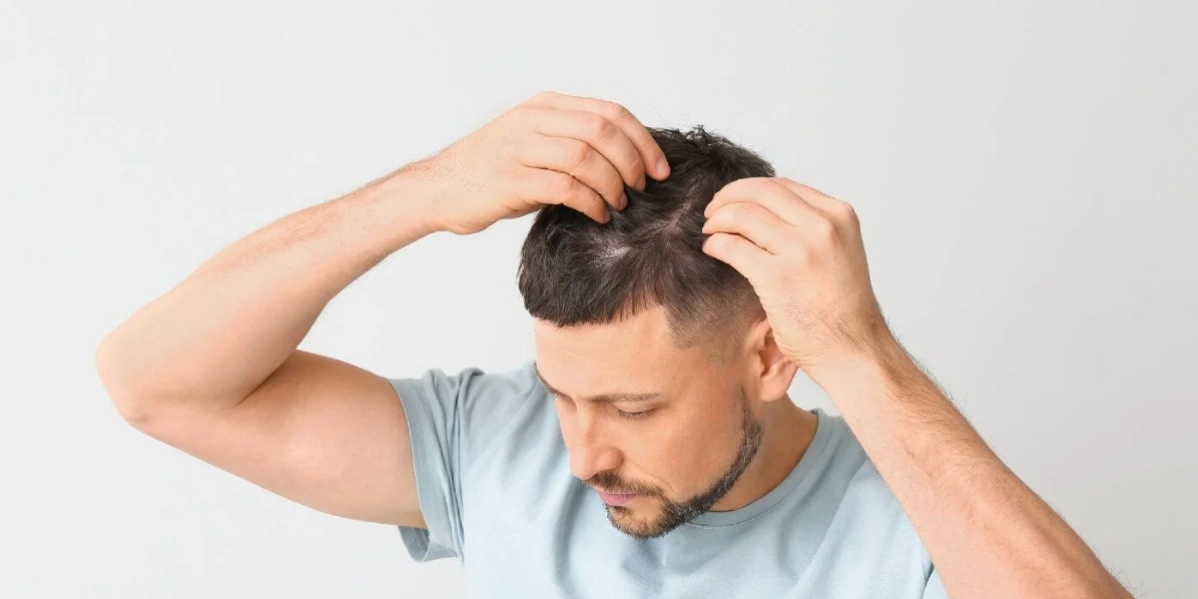Many people are surprised at how deeply hair loss can affect their self-image, mood, and day-to-day confidence. Whether it happens gradually or suddenly, it can leave individuals feeling frustrated and unsure about what steps to take next. That’s why turning to a Hair Specialist Doctor In Dubai can provide not only guidance but also a renewed sense of control over appearance and self-esteem. Understanding the process, available solutions, and emotional impact helps anyone facing hair concerns feel more supported and informed.
Understanding the Root Causes of Hair Loss
Hair loss is rarely a one-size-fits-all issue. It can arise from genetics, hormonal shifts, long-term stress, nutritional deficiencies, styling habits, or even environmental factors. Some people notice their hair becoming thinner over the years, while others experience sudden shedding triggered by life changes, illness, or lifestyle adjustments. Recognizing the cause is often the starting point for choosing an effective and safe solution. When the problem is identified correctly, it becomes easier to set realistic expectations and track progress over time.
The Impact of Hair Loss on Confidence
Hair plays a strong role in shaping identity, cultural expression, and personal style. When strands start to fall, many individuals begin to feel older, less attractive, or disconnected from how they used to look. This psychological effect can lead to social withdrawal or reluctance to participate in events. Trying to hide the issue through hats, scarves, or strategic hairstyles can provide temporary relief, but it often doesn’t address the emotional strain behind the scenes. A supportive and knowledgeable approach makes a real difference when dealing with these feelings.
Personalized Assessments Lead to Better Outcomes
No two people experience hair loss in the same way. Some may have thinning concentrated at the crown, while others notice receding hairlines or patchy shedding across the scalp. A thorough evaluation involves examining hair density, scalp health, medical history, lifestyle habits, and stress levels. The goal is to create a strategy that aligns with the individual’s unique situation, hair texture, and long-term aspirations. A tailored plan avoids the frustration of trial-and-error methods and helps build confidence more quickly.
Non-Invasive Options for Early Hair Concerns
Many individuals prefer starting with non-invasive solutions when they first notice changes in hair volume or thickness. Topical applications, scalp massages, nutrient-rich serums, and lifestyle adjustments such as improving diet and reducing stress can help stimulate healthier hair growth. These methods are especially effective for early-stage thinning or cases linked to temporary triggers like seasonal shifts or illness. Monitoring these approaches over time ensures that progress is tracked and adjustments are made if results slow down.
Scalp Health and Hair Nourishment
A healthy scalp is the foundation of strong, growing hair. It needs proper circulation, hydration, nutrients, and cleanliness to function effectively. Customized care routines may involve using gentle cleansers, exfoliating treatments, or oils that maintain moisture and reduce flakiness. When circulation improves, follicles receive the oxygen and nourishment they need, which contributes to thicker-looking strands. Even subtle changes in how the scalp is cared for can lead to visible improvements in density and shine.
Advanced Techniques for Ongoing Hair Loss
For individuals facing more advanced or persistent shedding, modern technologies offer numerous solutions. Devices using light stimulation, advanced topical formulas, or targeted therapies can encourage follicles to enter a growth phase and stay active for longer periods. Combined approaches often provide faster and more noticeable outcomes. Although progress may take weeks or months, the gradual return of volume helps individuals feel hopeful and motivated as they see new coverage and reduced daily shedding.
Nutrition and Internal Support
External treatments alone are rarely enough if the body isn’t receiving essential nutrients. Hair structure depends on proteins, vitamins, healthy fats, and minerals. Weak or brittle strands often signal that follicles are not getting everything they need. Adjusting daily meals to include leafy greens, lean proteins, fruits, whole grains, and hydration can enhance results from external methods. Supplements may be used when dietary gaps exist, ensuring that the body can maintain stronger, healthier hair from within.
Lifestyle Adjustments and Healthy Habits
Stress, lack of sleep, and harsh styling habits can compromise hair health. Over time, constant tension from tight styles or heat tools can damage follicles and slow regrowth. Emphasizing gentle hair care techniques, using protective hairstyles, managing stress, and ensuring adequate rest can support long-term scalp and hair vitality. Small lifestyle improvements contribute to overall well-being, which directly reflects in hair texture, thickness, and shine.
Monitoring Progress and Encouragement
Seeing changes in hair coverage takes patience and consistency. Regular follow-ups, assessments, and comparisons using photographs or hair density measurements help maintain motivation. Tracking positive changes—no matter how small—offers reassurance and encouragement during the journey. Being able to adjust the plan as needed keeps the process on the right track and builds trust in the steps taken.
Boosting Self-Image Through Realistic Expectations
Regaining hair isn’t always about returning to a previous appearance entirely; it’s about achieving meaningful improvement and reclaiming confidence. Many individuals discover that as soon as they notice signs of regrowth, their self-esteem quickly rises. Accepting that some solutions take time helps clear away disappointment and impatience. With the right mindset, each milestone feels like progress rather than a reminder of loss.
Strengthening Emotional Resilience
Hair restoration efforts often go hand in hand with nurturing mental and emotional well-being. Open conversations about feelings, supportive friends and family, and professional guidance when needed ensure that individuals maintain a balanced perspective. Feeling understood and encouraged eases the emotional weight of hair loss and ensures resilience in the face of everyday challenges. Confidence grows not only from physical changes but from emotional stability developed throughout the process.
Reinventing Personal Style and Identity
As hair begins to show improvement, many individuals rediscover their style preferences. Some choose new cuts, products, or grooming routines to highlight returning thickness. Others embrace a refreshed look that aligns with who they are today rather than who they were in the past. This process of reinvention creates an empowering experience that fosters self-expression and pride.
Community and Shared Experiences
People on similar journeys can offer valuable insights and empathy. Online platforms, support groups, or personal conversations help individuals realize they aren’t alone in their challenges. Learning from others’ stories and successes provides inspiration and practical tips for handling setbacks. The sense of belonging and shared understanding also reduces the isolation often associated with hair loss.
Long-Term Maintenance and Care
Once improvements begin, long-term maintenance ensures that progress continues steadily. Continued scalp care, balanced nutrition, stress management, and periodic evaluations sustain results. Consistency prevents relapse and promotes lasting satisfaction with personal appearance. Committing to a well-planned routine means that newfound confidence remains strong and stable.
Renewed Confidence and Lasting Benefits
As individuals see their appearance improve, self-confidence naturally expands into other areas of life. They feel more comfortable in social settings, professional environments, and daily interactions. Even small transformations in hair density or scalp health can have a significant ripple effect on self-assurance, posture, and overall presence.
Embracing the Journey and Looking Forward
The decision to seek help for hair loss is often a turning point toward empowerment. People gain clarity about their condition, receive ongoing support, and experience renewed optimism. The path may involve experimentation, adjustment, and patience, but consistent action leads to visible, meaningful outcomes. By embracing personalized methods and staying open to change, improvement becomes not only possible but sustainable.
Confidence Grows with Ongoing Support
A Hair Specialist Doctor plays a vital role in guiding individuals through each phase of their transformation. With informed strategies, attentive follow-through, and a focus on overall well-being, people are better equipped to reclaim the appearance they desire. This empowering approach ensures that hair restoration is not merely cosmetic but also a gateway to stronger confidence in all aspects of life.
Lasting Transformation and Positive Outlook
In the end, navigating hair loss with the right support and mindset brings lasting rewards. Confidence is rebuilt step by step, and each improvement fosters greater self-belief. By understanding the causes, exploring suitable solutions, and celebrating progress, anyone can break free of discouragement and look forward to a brighter, more assured future.


